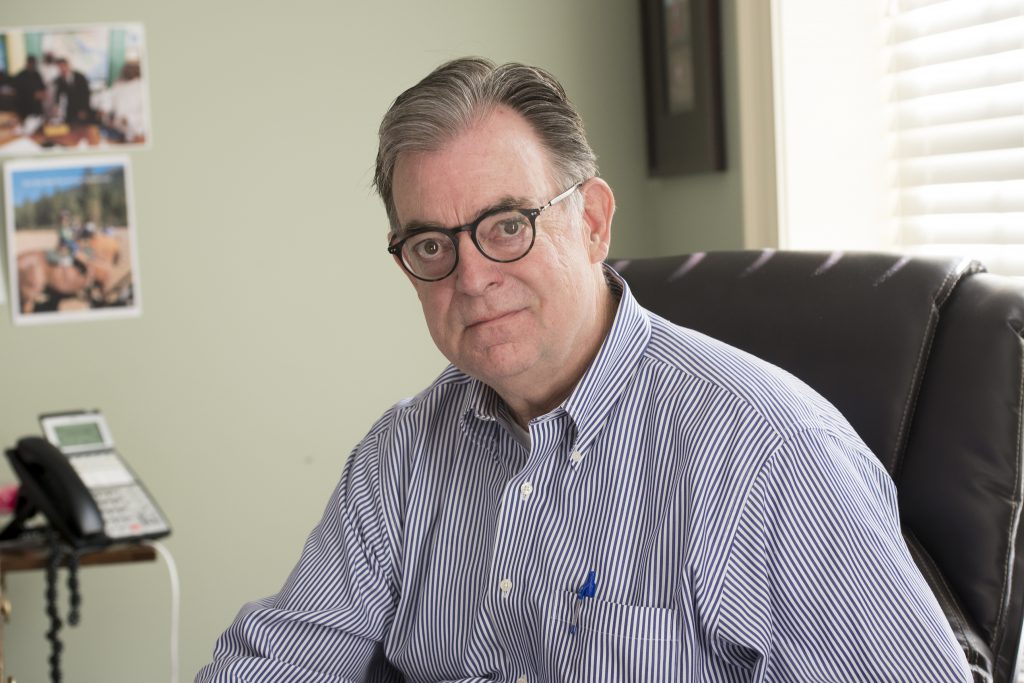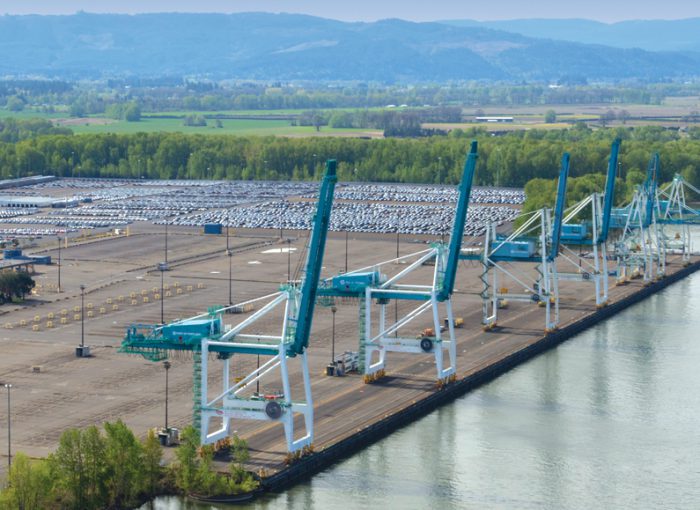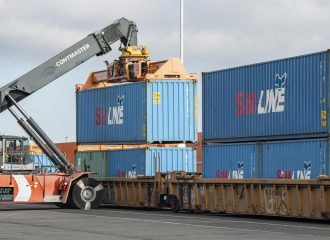As we look to define our future role in container shipping at Terminal 6, an industry leader committee will offer knowledge and guidance throughout the process.
The 25-member committee is a diverse group, including exporters, importers, service providers, carriers, labor and legislators with strong shipper interests.
We talked with Stu Follen, president of Portland-based SL Follen Company, a hay and feed product exporter, about his involvement on the committee.
 Why did you want to participate in this committee?
Why did you want to participate in this committee?
Our group of companies is one of the larger volume shippers in the state. We’d like to help find solutions to see T-6 operating again.
As an Oregonian and from a personal perspective, I’d like to do what I can to bring back jobs and restore our shipping legacy in the state.
What are the challenges for your company since container service ended at Terminal 6?
Our company is involved in exporting products such as hay, potatoes and onions to Asia and we also import tropical fruit. Some costs have risen but everyone has adjusted in our industry. We are using Seattle-Tacoma to ship our goods. It’s become the “new normal.”
We’ve had some logistics issues with all our volume having to go north. It’s created some lead time problems.
What perspective do you bring to the committee?
As you get older, you have some perspective from importing and exporting containers for all these years. I travel a lot – to Asia, Europe and Central America. I have a front row seat to many of these areas and I see their changing economies and demand for U.S. markets. I see global trade continuing to grow.
I think we may see demand from markets in the future that we don’t see as traditional markets. In the 1970s and 1980s, it was Japan. Now it’s China and later it may be Vietnam, India and Southeast Asia that are emerging economies and very dynamic with a growing middle class.
What questions do you want to see addressed throughout this process?
I think it’s important to look to the future and determine Portland’s role in the shipping industry going forward. Not looking at the past, but looking to the future.
The ships are getting bigger and the river, even though it’s been deepened to 43-feet, still isn’t capable of handling those giant ships. We have challenges and it’s important to make sure we’re realistic.
There is a role for Portland and the question is determining what it is. I think that’s why this committee was formed.
Note: The committee will meet 5-7 times between now and December 2017. A recommendation to the Port of Portland Commission will be provided in early 2018. More information about the committee is available at http://www2.portofportland.com/marine/Terminal6IndustryLeaders.





